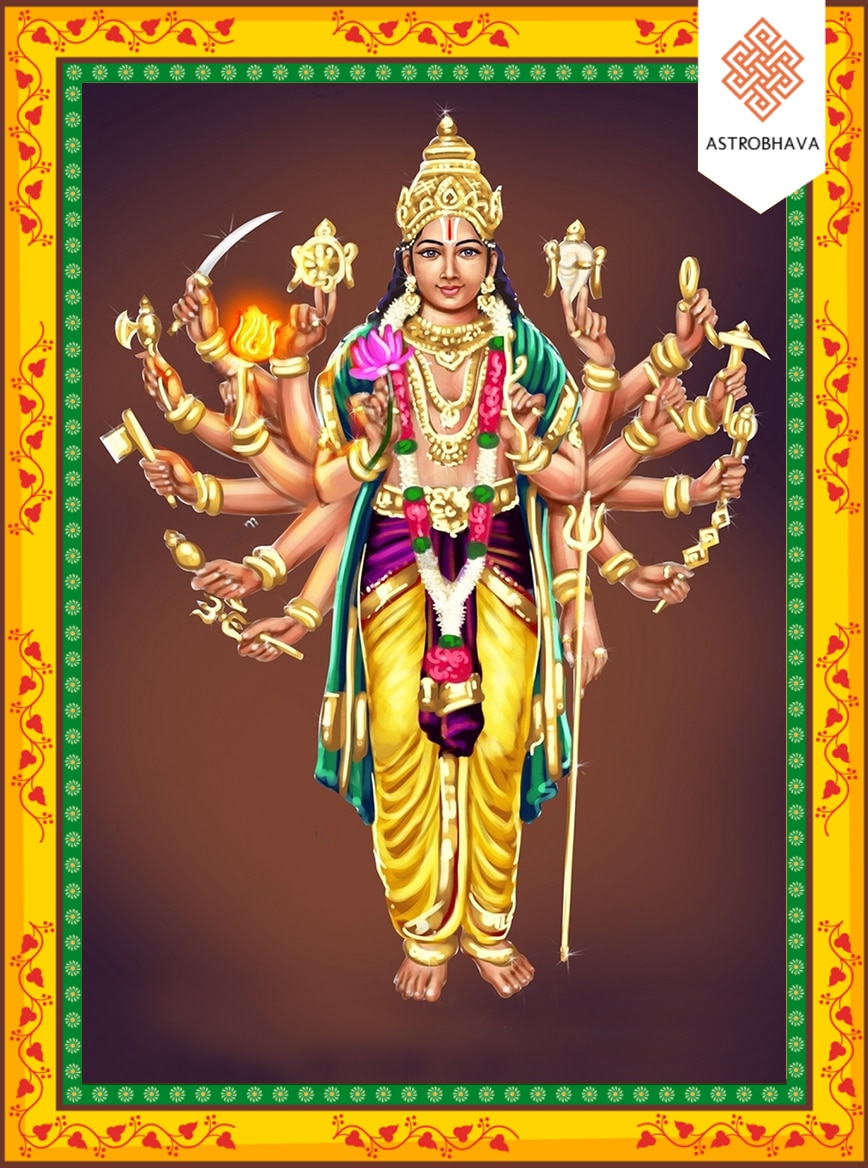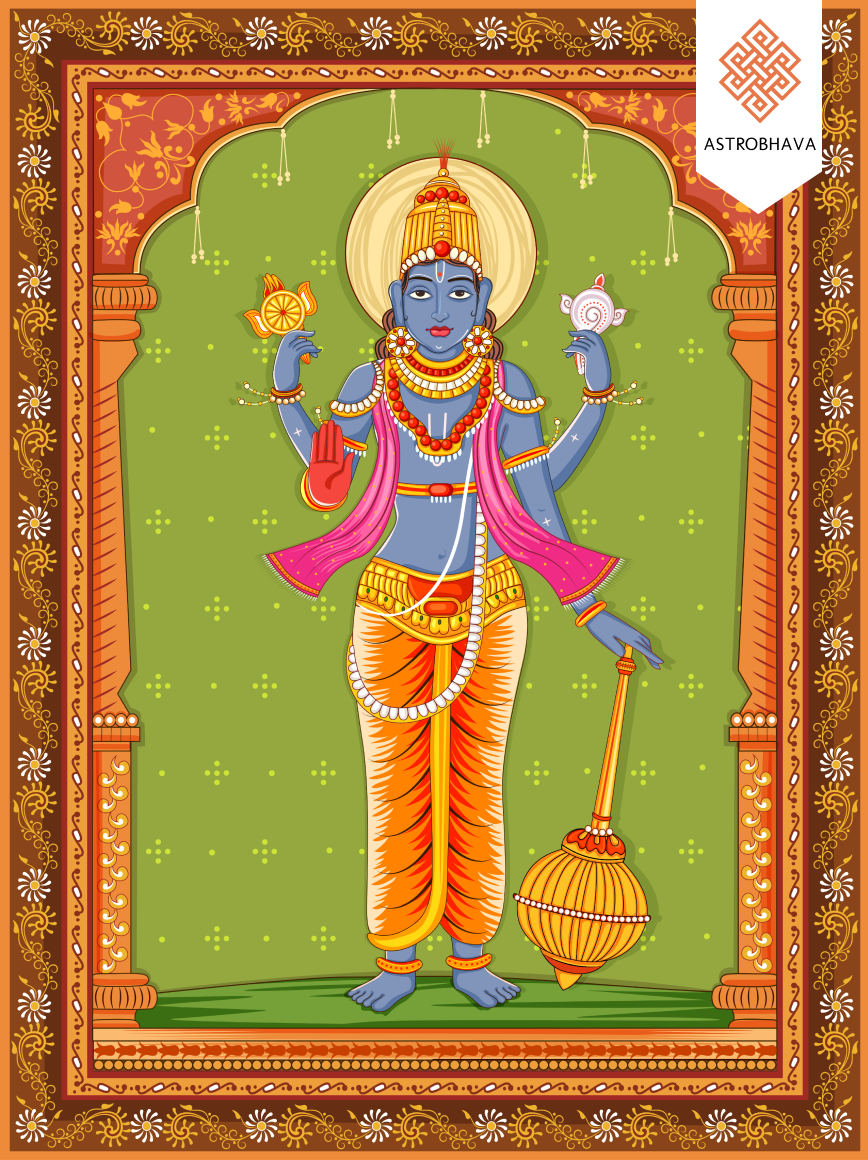
Dwadashi Tithi 2025
Dwadashi Tithi 2025
Dwadashi: Understanding Its Essence and Importance
Dwadashi, the twelfth day in each fortnight of the lunar calendar, holds immense spiritual and religious significance in various traditions. It follows Ekadashi, a day dedicated to fasting and spiritual practices, and is viewed as an auspicious day for completing fasting rituals and worship. Dwadashi is often associated with Lord Vishnu, who is considered the preserver of the universe in many Indian spiritual texts. Many people observe Dwadashi with various rituals, prayers, and offerings to seek divine blessings, spiritual purification, and personal growth.
One unique aspect of Dwadashi is its timing in relation to Ekadashi. Those who undertake the Ekadashi fast usually break it on Dwadashi, making it a day of spiritual completion. On Dwadashi, individuals are encouraged to maintain a calm and peaceful state of mind, avoid over-indulgence, and engage in charitable activities, prayers, and meditation to reinforce the positive effects of their fasting. The day also serves as a reminder to live in harmony with others, embrace humility, and be compassionate.
Significance of Dwadashi
- Spiritual Cleansing: Observing Dwadashi brings about a sense of spiritual cleansing as it serves as a completion to the fasting ritual. The spiritual discipline and self-control observed on Ekadashi carry forward, allowing individuals to cleanse not just their bodies but also their minds and souls.
- Divine Grace: Dwadashi is associated with Lord Vishnu, who is worshipped with great reverence. Observing the day with devotion is believed to bring blessings, peace, and protection. Devotees often visit Vishnu temples on Dwadashi to seek His grace and strengthen their spiritual connection.
- Completion of Ekadashi Vrat: Dwadashi marks the completion of the Ekadashi Vrat (fast) and is considered highly auspicious for breaking the fast. This day provides a gradual transition back to normal dietary habits and sustains the spiritual benefits achieved from the fast.
- Charity and Compassion: Dwadashi is also a day of charity and compassion. Many people offer food, clothes, or donations to those in need on this day, reinforcing the values of kindness and selflessness. Such acts on Dwadashi are believed to be blessed and beneficial.
- Harmonizing Mind and Body: Fasting on Dwadashi, in addition to Ekadashi, is thought to harmonize the mind and body, contributing to better physical and mental health.
Mantras to Chant on Dwadashi
- Om Namo Bhagavate Vasudevaya
- This is a powerful mantra dedicated to Lord Vishnu, often chanted to seek His blessings for peace, prosperity, and protection.
- Recommended Chanting: 108 times
- Vishnu Sahasranama
- This is a revered hymn consisting of 1000 names of Lord Vishnu. Chanting or listening to the Vishnu Sahasranama is said to bring peace, success, and divine protection.
- Recommended Practice: Recite in full if possible, or listen to an audio version.
- Om Shri Vishnave Namah
- This simple mantra invokes Lord Vishnu’s grace, believed to help overcome obstacles and attract positive energy.
- Recommended Chanting: 108 times
- Om Damodaraya Vidmahe Rukmini Vallabhaya Dheemahi Tanno Vishnu Prachodayat
- This is a Vishnu Gayatri mantra, chanted for spiritual upliftment, divine guidance, and mental clarity.
- Recommended Chanting: 21 or 108 times
- Om Narayanaya Namah
- A mantra to honor Lord Narayana, an aspect of Vishnu. Chanting this mantra brings tranquility and removes mental distress.
- Recommended Chanting: 108 times
- Maha Mrityunjaya Mantra
- Although primarily a Shiva mantra, chanting it on Dwadashi is also beneficial for health, protection, and overcoming fears.
- Mantra: “Om Tryambakam Yajamahe Sugandhim Pushtivardhanam Urvarukamiva Bandhanan Mrityor Mukshiya Maamritat”
- Recommended Chanting: 21 or 108 times
Dwadashi Tithi 2025
| Month | Dwadashi Tithi Details |
| January | – January 10, 10:20 AM to January 11, 8:22 AM |
| – January 25, 8:32 PM to January 26, 8:55 PM | |
| February | – February 8, 8:16 PM to February 9, 7:25 PM |
| – February 24, 1:45 PM to February 25, 12:47 PM | |
| March | – March 10, 7:45 AM to March 11, 8:14 AM |
| – March 26, 3:45 AM to March 27, 1:43 AM | |
| April | – April 8, 9:13 PM to April 9, 10:55 PM |
| – April 24, 2:32 PM to April 25, 11:45 AM | |
| May | – May 8, 12:29 PM to May 9, 2:56 PM |
| – May 23, 10:30 PM to May 24, 7:20 PM | |
| June | – June 7, 4:48 AM to June 8, 7:18 AM |
| – June 22, 4:28 AM to June 23, 1:22 AM | |
| July | – July 6, 9:15 PM to July 7, 11:10 PM |
| – July 21, 9:39 AM to July 22, 7:06 AM | |
| August | – August 5, 1:12 PM to August 6, 2:08 PM |
| – August 19, 3:33 PM to August 20, 1:59 PM | |
| September | – September 4, 4:22 AM to September 5, 4:08 AM |
| – September 17, 11:40 PM to September 18, 11:25 PM | |
| October | – October 3, 6:33 PM to October 4, 5:09 PM |
| – October 17, 11:12 AM to October 18, 12:19 PM | |
| November | – November 2, 7:32 AM to November 3, 5:07 AM |
| – November 16, 2:37 AM to November 17, 4:48 AM | |
| December | – December 1, 7:01 PM to December 2, 3:57 PM |
| – December 15, 9:20 PM to December 16, 11:57 PM |
Remedies for Dwadashi
- Donating food, clothes, or money to the needy on Dwadashi is considered very auspicious. Acts of charity performed on this day are said to attract blessings, cleanse past karmas, and create positive energy around the individual.
- Worshiping the Tulsi (holy basil) plant is believed to attract the grace of Lord Vishnu. Offering water to Tulsi and lighting a diya (lamp) near it on Dwadashi is believed to bring peace, prosperity, and protection from negativity.
- Vishnu Homa: Performing a homa dedicated to Lord Vishnu on Dwadashi can bring immense blessings. This homa is meant to enhance spiritual growth, remove obstacles, and protect from negative influences.
- Maha Sudarshana Homa: The Maha Sudarshana Homa invokes the protective energies of Lord Vishnu’s Sudarshana Chakra. It is often performed to alleviate personal struggles and attract peace and positivity.
- Satyanarayan Puja: Conducting a Satyanarayan Puja on Dwadashi is highly auspicious and is believed to bring prosperity and success. This puja is dedicated to Lord Vishnu, and devotees seek His blessings for overcoming life’s challenges and ensuring family well-being.
- Vishnu Sahasranama Puja: Reciting or organizing a puja with the chanting of Vishnu Sahasranama (1000 names of Vishnu) brings a divine connection, mental peace, and blessings from Lord Vishnu.
- Om Namo Bhagavate Vasudevaya Japa: Chanting this mantra on Dwadashi invokes the blessings of Lord Vishnu. Regular practice on this day can bring about personal transformation and inner peace.
- Maha Mrityunjaya Japa: The Maha Mrityunjaya Mantra, while commonly associated with Lord Shiva, is also beneficial for overall well-being and can be performed on Dwadashi for protection, health, and healing.
Do’s on Dwadashi
- Break Ekadashi Fast at the Right Time
- Break your Ekadashi fast during the prescribed Dwadashi parana time to complete the fast effectively. Consult a reliable almanac or local temple for precise timings.
- Offer Prayers to Lord Vishnu
- Visit a Vishnu temple if possible or create a peaceful space at home for worship. Offer flowers, fruits, and light a diya to seek blessings from Lord Vishnu.
- Recite Vishnu Sahasranama
- If possible, recite the Vishnu Sahasranama or listen to it. This recitation is said to purify the mind and attract divine energy.
- Worship Tulsi Plant
- Offer water and light a lamp near a Tulsi plant. Tulsi is sacred to Vishnu, and performing this ritual is believed to enhance spiritual growth and prosperity.
- Engage in Charity
- Acts of charity, such as donating food, clothes, or money to the needy, are highly encouraged on Dwadashi. Charity brings blessings and clears past karmic debts.
- Maintain Cleanliness and Personal Purity
- Clean your home and maintain personal cleanliness. Dwadashi is regarded as a day of spiritual purity, and cleanliness is part of the worship process.
- Observe Peace and Positive Behavior
- Keep a calm mind and avoid anger or conflict. Strive to maintain a peaceful and compassionate attitude throughout the day.
Don’ts on Dwadashi
- Avoid Over-Indulgence in Food
- Since Dwadashi follows a fasting day, it’s recommended to eat simple, vegetarian food. Avoid heavy, spicy, or oily foods, as they may disrupt the body’s balance after fasting.
- Refrain from Non-Vegetarian Foods and Alcohol
- Non-vegetarian food and alcohol are best avoided on Dwadashi, as they contradict the day’s spiritual objectives.
- Avoid Engaging in Negative Speech or Actions
- Try to maintain a positive mindset and refrain from gossip, arguments, or speaking ill of others. Negative speech can create mental disturbance and reduce the spiritual benefits of the day.
- Do Not Cut or Pluck Tulsi Leaves
- Tulsi is sacred to Lord Vishnu, and it is generally advised not to cut or pluck Tulsi leaves on Dwadashi. You can, however, offer water and light a diya near the plant.
- Limit Physical and Mental Exhaustion
- Avoid activities that may cause excessive physical or mental exhaustion. Instead, focus on restful and peaceful activities like meditation, prayer, and reading spiritual texts.
- Refrain from Wearing Dark or Inauspicious Colors
- Wear clean and light-colored clothing as they are considered more spiritually harmonious. Avoid dark colors, which are sometimes believed to carry heavier energy.
- Avoid Lending or Borrowing Money
- It is generally recommended to avoid any financial transactions, such as lending or borrowing money, on Dwadashi to ensure financial stability and peace.
- Avoid Sleeping During the Day
- Traditionally, sleeping during the day on Dwadashi is discouraged, as it is believed to reduce the spiritual merit gained from fasting and prayers.
- Do Not Disregard Fast-Breaking Rituals
- If you have observed an Ekadashi fast, ensure you break it properly on Dwadashi with the appropriate rituals. Disregarding the fasting guidelines may lessen the spiritual effects.
Benefits of Dwadashi Fasting
Dwadashi fasting offers numerous spiritual, mental, and physical benefits. Observing this practice, especially following the Ekadashi fast, can lead to inner peace, better health, and a deeper connection with the divine. Here are 10 key benefits of Dwadashi fasting in 1000 words:
- Spiritual Cleansing and Inner Peace
Observing Dwadashi fast acts as a continuation of the Ekadashi fast, bringing about spiritual cleansing. Fasting is an act of self-discipline and renunciation, which helps eliminate impurities of the mind and soul. It allows for deeper introspection, encouraging individuals to connect with their inner selves, cultivate inner peace, and embrace spiritual growth. This cleansing effect provides a pathway for further devotion, opening the heart to divine energies. - Connection with the Divine
Dwadashi is associated with Lord Vishnu, and fasting on this day is believed to invoke His blessings. By dedicating the day to fasting, prayers, and chanting, devotees strengthen their connection with the divine. This connection fosters a sense of security, hope, and faith in times of uncertainty, providing a spiritual anchor. The act of fasting helps align the practitioner’s mind with the divine presence, reinforcing their commitment to spiritual values and practices. - Completion of Ekadashi Fasting Ritual
Dwadashi serves as the completion day for those who observe the Ekadashi fast. Breaking the fast at the right time on Dwadashi, known as parana, is crucial for experiencing the full benefits of the Ekadashi vrat. Observing Dwadashi fast before breaking an Ekadashi fast amplifies its spiritual rewards, helping devotees experience the full effect of both fasts. This completion brings a sense of fulfillment and personal satisfaction, strengthening spiritual discipline and commitment. - Improvement in Physical Health and Digestive Rest
Fasting on Dwadashi provides physical benefits by allowing the digestive system to rest and reset. A day of fasting reduces digestive strain, promotes metabolic health, and can lead to better absorption of nutrients. By abstaining from heavy or unhealthy foods, the body gets a chance to cleanse itself of toxins and recalibrate. Regular fasting on Ekadashi and Dwadashi has been associated with improved gut health, lower cholesterol, and a balanced metabolism, contributing to better overall well-being. - Mental Clarity and Enhanced Focus
Fasting on Dwadashi promotes mental clarity, as it requires a calm mind and focused intentions. Fasting helps regulate energy levels, reducing anxiety and promoting concentration. By redirecting energy from food digestion, individuals can concentrate better on meditation and spiritual practices, fostering a clear and peaceful mental state. This clarity enables one to understand and resolve personal challenges more effectively, leading to better mental health. - Purification of Past Karma
According to spiritual beliefs, fasting on Dwadashi can cleanse past karma, allowing individuals to clear negative energy and start anew. This purification is thought to occur as fasting instills discipline, humility, and self-restraint, helping individuals refrain from negative actions and thoughts. By dedicating the fast to Lord Vishnu, devotees seek His blessings to overcome past karmic influences, making space for positive energies and better outcomes in life. - Promotes Charity and Compassion
Dwadashi is often observed with acts of charity, encouraging individuals to give back to society. Many devotees engage in charitable deeds such as feeding the poor, donating to temples, or offering alms on Dwadashi. This compassionate practice fosters empathy and kindness, building a sense of unity and support among communities. Charity on Dwadashi is said to multiply blessings, allowing individuals to create good karma, cultivate compassion, and spread positivity. - Enhanced Self-Discipline and Self-Control
Fasting on Dwadashi requires dedication, self-discipline, and self-control. Abstaining from indulgences and focusing on spiritual practices strengthens one’s ability to resist temptations and stay committed to a purpose. This increased self-discipline carries over into other aspects of life, such as personal and professional responsibilities, helping individuals make thoughtful decisions, stay focused on goals, and lead a balanced lifestyle. - Boosts Immune Health and Longevity
Regular fasting, including on Dwadashi, is believed to boost immune health by reducing inflammation, allowing the body to redirect energy to repair and rejuvenate itself. Studies have shown that intermittent fasting can lead to cellular repair processes, enhancing the immune response and slowing down aging. By promoting physical and mental well-being, Dwadashi fasting can increase longevity and vitality, leading to a healthier life. - A Path to Liberation (Moksha)
Fasting on Dwadashi is considered a step towards liberation or moksha. According to spiritual beliefs, those who observe fasting and practice devotion sincerely on Dwadashi may attain a higher state of consciousness and pave their way toward moksha. This ultimate goal of liberation is seen as freedom from the cycle of rebirth and is central to spiritual teachings. Dwadashi fasting thus helps individuals progress on their spiritual journey, bringing them closer to achieving liberation and divine union.
These benefits highlight the importance of Dwadashi fasting for holistic health, spiritual progress, and personal transformation. By observing this practice with sincerity and devotion, individuals can experience profound changes in mind, body, and soul, leading to a fulfilling and harmonious life.
Frequently Asked Questions about Dwadashi
- What is Dwadashi? Dwadashi is the twelfth day of each lunar fortnight, often regarded as a sacred day dedicated to Lord Vishnu.
- Why is Dwadashi significant? It marks the end of the Ekadashi fast and is a day for spiritual completion, worship, and charity.
- What is the best time to break an Ekadashi fast on Dwadashi? Breaking the fast is usually done after sunrise on Dwadashi, during the parana time specified by religious texts or as per the local almanac.
- Can I break my fast later in the day on Dwadashi? While it’s ideal to break the fast early in the day, you may adjust it based on personal circumstances but should do so during the prescribed period.
- What should I eat to break the fast on Dwadashi? Simple, vegetarian foods are recommended, such as fruits, dairy products, and light grains.
- Are there specific prayers for Dwadashi? Yes, prayers dedicated to Lord Vishnu are most common on Dwadashi. Reciting the Vishnu Sahasranama or offering prayers to Tulsi is also considered auspicious.
- Can I observe Dwadashi if I didn’t fast on Ekadashi? Yes, you can still observe Dwadashi with devotion, although it traditionally follows the Ekadashi fast.
- Is Dwadashi only for Vishnu devotees? While Vishnu devotees observe it with special reverence, anyone can practice Dwadashi observances for its spiritual and personal benefits.
- What is the difference between Ekadashi and Dwadashi? Ekadashi is the fasting day, while Dwadashi is the day to break the fast, focusing on devotion, charity, and gradual reintegration of food.
- Can I observe Dwadashi without fasting? Yes, observing Dwadashi rituals, performing acts of charity, and maintaining a calm mindset are beneficial even without fasting.
- Why is Dwadashi associated with Lord Vishnu? Lord Vishnu is regarded as the preserver, and Dwadashi, following Ekadashi, symbolizes preservation of the spiritual gains achieved through fasting.
- What are the key rituals of Dwadashi? Key rituals include breaking the Ekadashi fast, offering prayers to Lord Vishnu, and engaging in charity.
- Can I do homa rituals at home on Dwadashi? Yes, many people perform small-scale homas or rituals at home, such as Vishnu Homa, with proper guidance.
- Are there any restrictions on food or behavior on Dwadashi? It’s advisable to eat simple, vegetarian food and maintain a calm and peaceful disposition on Dwadashi.
- What is the role of Tulsi in Dwadashi rituals? Tulsi is sacred to Lord Vishnu, and offering prayers or lighting a lamp near a Tulsi plant on Dwadashi is believed to attract divine blessings.








